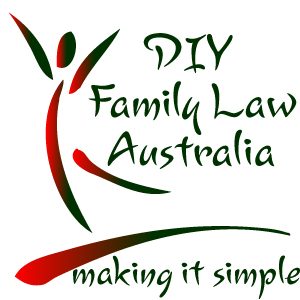What does that Word or Phrase mean?
This Law Dictionary (Glossary) contains words, terms and phrases used on this website, by Family Law Practitioners and which are commonly used in the Family Court and Federal Circuit Court (previously known as the Federal Magistrates Court).
Our Law Dictionary is in plain english, easy to understand, user friendly, practical and comprehensive.
A ~ B ~ C ~ D ~ E ~ F ~ G ~ H ~ I ~ J ~ K ~ L ~ M ~ N ~ O ~ P ~ Q ~ R ~ S ~ T ~ U ~ V ~ W ~ X ~ Y ~ Z
A
Act – (or Act of Parliament) is a statute (commonly called a law) enacted as primary legislation by federal or state parliament.
Address for service – The address given by a party where documents can be served on them by personally, by hand, post or some other form of electronic communication.
Adjourn – Defer, delay or postpone a Court event to another day.
Adjournment – When a case is put off to another date.
Affidavit – A written statement by a party or witness. It is the main way of presenting the facts of a case to the Court. An affidavit must be signed before an authorised person (such as a barrister, lawyer, Justice of the Peace or Commissioner for Declarations) by way of swearing on the Bible or attesting to the truth of the contents of the statement. It can be used to support an application or can be tendered by a party to a proceeding as evidence in Court. ‘Evidence in Chief’ is given in the Affidavit you file.
Affidavit of Service – An Affidavit ‘swearing’ that the documents referred to in the Affidavit were delivered to a party (or their legal representative).
Agreed Facts – Are facts which are not in dispute between the parties.
Agent – A person who acts or appears on behalf of another person.
Appeal – A procedure which allows a party to challenge the decision made by a Court.
Appear/Appearance – When you go to Court and appear before a Judicial Officer, you are ‘appearing’ or making an ‘appearance’.
Applicant – The person or organization who applies to a Court to start a legal proceeding against another person or persons to obtain Orders. Applicants, appellants, plaintiffs, complainants respondents, defendants, etc are also often referred to as ‘parties’ in a court action.
Application – A document that initiates (starts) a legal proceeding. It is also a broad term for what the Applicant is doing in Court – ie. they are ‘making an application’.
Application in a Case – An Application made during a case. An Application filed after an Application has been filed (initiating proceedings) and before the case has been finally determined. It is usually about an Interim issue that arises during the Case.
Appellant – Person who starts an appeal in a Court. Applicants, appellants, plaintiffs, complainants respondents, defendants, etc are generally called ‘parties’.
Appellate Court – A procedure which allows a party to challenge the decision made by a Court.
Attachment(s) – Are documents that are both referred to in an Affidavit and attached to the Affidavit.
Annexure(s) – Are the same as ‘Attachments’. See Attachments.
AVO/ADVO – Refers to an Apprehended Violence Order issued by a State Court. Also known as a DVO (Domestic Violence Order.
B
Bar – The practicing members of the legal profession admitted as Barristers.
Bar Table – Where the legal representatives and parties sit when appearing in Court.
Barrister – A legal practitioner whose principle work involves presenting cases in Court, tribunals or formal hearings. They also undertake a variety of other work, providing specialist legal advice and acting as Mediators, arbitrators, referees or Conciliators.
BIC – Is an abbreviation commonly used for ‘Best Interests of the Child(ren).
Binding – Something that is legally enforceable and must be followed.
Binding Financial Agreement – An agreement as to what will occur financially, with assets, liabilities, income and debts in the event a relationship breaks down. Types of Binding Financial Agreements include Cohabitation Agreements, Pre Nuptial Agreements, Post Nuptial Agreements, Separation Agreements and Divorce Agreements.
Breach – When a Court finds a party has not complied with (followed) a Court Order, that party is in contravention of (or has breached) the Order.
C
Carriage Money – Is payment for the costs or expenses associated in producing material for the Court. Also known as ‘Conduct Money’. See also Subpoena.
Case – The matter before the Court, when a person makes an application to a Court for Orders, that becomes the case before the Court.
Case at first instance – The first time the facts of a case are considered. The first time a Judge makes a final decision, making orders.
Case Conference – This can be a Conference organized between the parties and their legal representatives to try to settle the dispute before the final hearing or it can be Ordered by the Court.
Case law – The area of law developed by Courts when hearing and determining disputes.
Case Management Directions – A set of directions about how cases are managed by the Court to help parties achieve a just resolution of their dispute in a way which is prompt and economical.
Casetrack – The Court’s integrated case management system.
CC – An abbreviation for Change of Circumstances.
CCP – An abbreviation for the ‘Commonwealth Courts Portal’. See ‘Commonwealth Courts Portal’ below.
CFM – An abbreviation for the Chief Federal Magistrate.
Change in Circumstances – A phrase used to refer to circumstances which ‘justify’ the reopening of a case when Final Orders have previously been made.
Child Dispute Services – Child Dispute Services are provided by family Consultants who are trained in social work or psychology. These services aim to assist parents and carers understand the needs of their children and to assist the Court to make decisions that are in the best interests of the children. In keeping with the new family law framework, the services are not confidential or privileged and information obtained through interviews with children, parents and others is admissible in Court proceedings.
Chronology – Is a timeline of events or things that occurred in date Order. It can be presented by each party or can be agreed by the parties.
CJ – An abbreviation for the Chief Justice.
Cohabitation Agreement – An agreement between people who are either already in, or about to enter into, a De Facto Relationship, setting out what will occur financially, with assets, liabilities, income and debts in the event their relationship breaks down. It is a type of Binding Financial Agreement.
Common law – Case law developed in common Courts. This term is sometimes used to describe all case law or judge made law.
Commonwealth Courts Portal – Provides secure web-based access to electronically file certain court documents as well as access information about cases that are before the Family and Federal Circuit Courts of Australia. https://www.comcourts.gov.au
Conciliation Conference – A Conference convened by legal trained Registrars in the Family and Federal Magistrates Courts. It involves all parties and their lawyers, aiming to resolve disputes in financial cases.
Conduct Money – Is payment for the costs or expenses associated in producing material for the Court. Also known as ‘Carriage Money’. See also Subpoena.
Consent Orders – An agreement between the parties that is approved by the Court and then becomes a Court Order. They carry the weight of a Court Order but are different as they have not be ‘determined’ (after a Court hears evidence and decides) by a Court.
Contempt – Is when someone intentionally or deliberately ignores or fails to follow an Order or Direction from a Court. ‘Being in Contempt’ can carry a penalty which will depend on the severity of the offence.
Contravention – When a Court finds a party has not complied with (followed) a Court Order, that party is in contravention of (or has breached) the Order.
Costs – The legal fees and expenses of a party to a case in Court.
Counsel – A Barrister.
Court Hearing – The date and time when a case is scheduled to come before the Court.
Court Order – The actions the parties or a party must do to carry out a decision made by a Court. An Order may be either interim or final.
D
Decision – See ‘Determination’.
Determination – After a Court hears and considers all evidence they made a determination which is handed down as a Judgment.
Determination of fact – The Court’s role to discover the truth.
Directions – A judge gives directions so that the parties can properly be ready for a Court event. It is usually a list of steps to be taken by the parties together with the deadline dates for those steps to have been taken.
Directions Hearing – A hearing at which the way a case will be heard and run will is determined. This can also occur at a ‘Mention’ or ‘Procedural Hearing’.
Disclosure – Revealing and producing all relevant information and documents.
Discontinuance – Occurs when a party who has started legal proceedings decides to stop them.
Dismiss – When a party is excused from appearing further or when a case is closed by the Court.
Discovery – The process by which the parties in the case inform the other of the documents they have in their possession which relate to the matters in dispute.
Discretion – The ability to choose whether to, or whether not to, proceed with a decision.
Dispute Resolution – A process by which parties try to reach agreement on some or all of the issues in dispute.
Divorce Agreement – An agreement between people who were either married but who have divorced, setting out what will occur financially, with assets, liabilities, income and debts. It is a type of Binding Financial Agreement.
Divorce Order – An Order made by a Court that ends a marriage.
DVO – Refers to an Domestic Violence Order issued by a State Court. Also known as a AVO/ADVO (Apprehended Violence Order).
E
eFiling – The procedure of electronically lodging a document through the Commonwealth Courts Portal.
Enforceable – A Court is able to make sure something happens, to force it to occur.
Enforcement Order – An Order made by a Court to make a party or person comply with (follow) an Order.
Evidence – The facts and circumstances offered to prove or disprove an issue. Evidence may be given orally or presented in writing.
Evidence in Chief – The whole of the evidence given by a party in a court action at a hearing being offered to prove or disprove an issue or support a case. For Final Hearings ‘Evidence in Chief’ is commonly put into a detailed Affidavit filed in the Court action.
Exhibit – A document or item produced in Court for inspection by the Court, to be shown to a witness because it is referred to in evidence.
Ex parte hearing – A hearing where one party is not present and has not been given notice of the application before the Court; usually reserved for urgent cases.
F
Family Consultant – A psychologist and/or social worker who specialises in child and family issues that may occur after separation and divorce.
Family Dispute Resolution – A process whereby a Family Dispute Resolution Practitioner assists people to resolve some or all of their disputes with each other following separation and/or divorce. Similar to a Mediation but by an organization authorized to issue a Section 60I Family Dispute Resolution Certificate.
Family Dispute Resolution Certificate – A Certificate issued by the ‘Family Dispute Resolution Practitioner’ to confirm a party has either attended or tried ‘Family Dispute Resolution’. Also known as a ‘Section 60I Certificate’. It is almost always required by a Court to be filed to start proceedings in Family Court or Federal Magistrates Court regarding Children.
Family Dispute Resolution Practitioner – A person approved Commonwealth Attorney-General’s Department to provide Family Dispute Resolution and issue FDR Certificates.
Family Law Courts – Comprise the Family Court of Australia and the Federal Magistrates Court of Australia.
Family Law Act 1975 – The law in Australia which covers family law matters.
Family Law Registry – A public area at a Family Law Court where people can obtain information about the Court and its processes and where parties file documents in relation to their case.
Family Report – A written assessment of a family by a family consultant. A report is prepared to assist a Court to make a decision in a case about children.
Family Violence – Conduct (whether actual or threatened) by a person towards a family member, or property of a family member, that causes reasonable fear (or reasonable apprehension) for his/her personal wellbeing or safety.
Family Violence Order – An Order made under Commonwealth, state or territory legislation to protect a person, including a child, from violence.
FDR – An abbreviation for ‘Family Dispute Resolution’.
Federal Magistrate – A judicial officer of the Federal Magistrates Court, now known as the Federal Circuit Court and as a Federal Judge.
Filing – The procedure of lodging a document at a family law registry for placing on the Court file.
Financial Agreement – Also known as a Binding Financial Agreement.
Financial Resource – A source of financial support which a person can reasonably expect will be available to them, for example a pension, superannuation.
Financial Statement – A specific form called a ‘Financial Statement’ is required to be filed by parties in a financial case such as property settlement, maintenance, child support or financial enforcement.
Final Order – An Order made by a Court to bring a case to a close.
Final Hearing – Judicial examination and determination of issues between parties with or without a jury. The final hearing (trial) of a matter before a judge, federal magistrate, or judicial registrar. Having considered all the evidence presented, the judicial officer will make Orders to finalise the matter.
FM – An abbreviation for a Federal Magistrate, now known as a Federal Judge.
Form – A specific document that must be completed and filed at Court. Different forms are used for different family law matters.
Further Order of the Court – The next Order the Court makes on the issue.
G
H
Hearing – A proceeding conducted by the Court to resolve issues or fact and/or law, in which evidence may be taken.
I
Independent Children’s Lawyer – A lawyer appointed by the Court to represent a child’s interests in a case.
Injunction – A Court Order making a person do, or refrain from doing, something.
Interim Application – An application for an Interim Hearing to occur so an Order can be made by the court. That ‘Interim Order’ will apply until either a Final Order is made, or a further Order of the Court is made.
Interim Hearing – A short hearing at which the court makes temporary Orders about a case. It can take many months before a Final Hearing will occur and so an Interim Hearing about a particular issue might take place while you are waiting for a final decision or for the matter to be allocated a final hearing date.
Interim Order – An Order made by a Court until another Order or a final Order is made.
Interlocutory – Interlocutory proceedings are specific issues in a matter usually dealt with between the filing of the application and the giving of the final hearing and decision.
J
Judgment – A decision by a Court after all the evidence is heard.
Judgment reserved – When a judicial officer needs time to consider all the evidence and argument and so postpones the delivery of the judgment from the date of the hearing in Court to some later date.
Judicial discretion – The right of a judge to make a choice, eg. In issuing certain Orders.
Judicial Officer – A person who has been appointed to hear and decide cases; for instance, a judge or federal magistrate.
Judicial Registrar – A judicial officer who holds similar powers to a judge.
Jurisdiction – The authority given to a Court and its judicial officers to apply the law. For example, the Courts have jurisdiction under the Family Law Act 1975 in family law matters.
K
L
Leave – Permission to do something.
Legislation – An act of parliament or piece of delegated legislation.
Liberty to apply – The right of a party to apply for future Orders to be made by the Court, without the party having to commence a new action or file a formal document in a proceeding.
Listing – An event before a judge or registrar that is usually organized in advance and recorded on the Court’s case management system and notice boards.
Litigants – People who are parties to a dispute before a Court they are ‘litigating’ or involved in legal proceedings.
M
Magellan – A case management system designed to ensure that matters involving allegations of serious child abuse are dealt with as effectively and efficiently as possible.
Matter – A matter is the case, or the legal proceeding.
Mediator – The impartial third party who assists the parties to a dispute in an attempt to bring about an agreed settlement or compromise of the dispute.
Mediation – A process in which an impartial third party (the mediator) assists the parties to a dispute in an attempt to bring about an agreed settlement or compromise of the dispute.
Mention date – A hearing at which the way a case will be heard and run will is determined. This can also occur at a ‘Directions’ or ‘Procedural Hearing’.
N
Natural justice – Rules of fair play originally developed in the common law Courts.
Notice to Produce – A document in which one party calls upon the other party to bring specific documents to the Court at a specified time.
O
On the papers – To deal with an application on the written evidence and submissions filed by the parties, without taking oral evidence or submissions.
Order – The Court has the power to Order (make) a person do certain things.
P
Parental Responsibility – The responsibility of each parent to make decisions about the care, welfare and development of their children. These responsibilities may be varied by agreement or by a Court Order.
Parenting Plan – A written agreement between the parties setting out parenting arrangements for children. It is not approved by or filed with a Court.
Party or Parties – A person or legal entity, such as a corporation, involved in a Court case; for example, the applicant or respondent or a third party.
Pending – Pending matters are filed cases that have not yet been finalized by judgment or otherwise.
Post Nuptial Agreement – An agreement between people who have already married but are not yet separated, setting out what will occur financially, with assets, liabilities, income and debts in the event their relationship breaks down. It is a type of Binding Financial Agreement.
Practice Directions – Practice Directions are issued by the Chief Justice or the Chief Federal Magistrate for the assistance of parties and practitioners about the conduct of proceedings before the Court.
Precedent – A decision made by a judicial officer which may serve as an example for other cases or Orders. A Judgment from an equivalent or higher Court may be quoted as an authority for deciding a similar set of facts.
Pre Nuptial Agreement – An agreement between people who are about to marry, setting out what will occur financially, with assets, liabilities, income and debts in the event their relationship breaks down. It is a type of Binding Financial Agreement.
Prima facie case – Prima facie is Latin for ‘at first sight’ or ‘on first consideration’. A showing of sufficient evidence to initially establish an applicant’s case. If a case is made out, the opposing party (respondent) must then respond. If not, the case is dismissed. It is normally applicable to urgent applications such as recovery Orders.
Procedural Hearing – A hearing at which the way a case will be heard and run will is determined. This can also occur at a ‘Mention’ or ‘Directions Hearing’.
Procedural Order – An Order made by a Court of a practical nature. For example, the Court may Order the parties to attend family dispute resolution.
Property – Property includes assets, liabilities and debts in which a party has an interest, whether in joint names, in the name of one party only, business interests, companies’ trusts’, as well as assets owned prior to the commencement of the relationship, amongst other things. Property Settlement – The division of property , assets, financial resources, liabilities and debts following the breakdown of a martial or de facto relationship.
Q
R
Registrar – A Court lawyer who has been delegated power to perform certain tasks; for example, grant divorces, sign consent Orders and decide the next step in a case.
Respondent – A person named as a party to a case. A respondent may or may not respond to the Orders sought by the applicant.
Registry – An office in the Court that files Court documents or accepts Court documents for filing.
Return date – The date on which the matter is next listed before the Court.
Rules – A set of directions that outlines Court procedures and guidelines. The rules of the Family Court are the Family Law Rules 2004 and the rules of the Federal Magistrates Court are the Federal Magistrates Court Rules 2001.
S
Sealed Copy – a copy of a document which has been filed in Court and which has the original Court seal stamped on it, or if it has been e-filed, which has the document filing confirmation notice (which contains a Court Seal) attached to it.
Section 60I Certificate – A Certificate issued by the ‘Family Dispute Resolution Provider’ to confirm a party has either attended or tried ‘Family Dispute Resolution’. Also known as a ‘Family Dispute Resolution Certificate’. It is almost always required by a Court to be filed to start proceedings in Family Court or Federal Magistrates Court regarding Children.
Service – The process of sending or giving Court documents to a party after they have been filed, in accordance with the rules of Court. Service ensures that all parties have received the documents filed with a Court.
Self Represented Litigant – A person who is a party to a dispute before the Court who does not have legal representation and who is conducting the matter on their own behalf.
Separation Agreement – An agreement between people who were either married or in a de facto relationship but who have separated (and not divorced), setting out what will occur financially, with assets, liabilities, income and debts. It is a type of Binding Financial Agreement.
Stand over – To adjourn a matter to another date.
Statutes – Acts of parliament. See also ‘Act’.
Submissions – Legal argument (either oral or written) put to the Court at a hearing.
Subpoena – A document issued by a Court, at the request of a party, requiring a person or organization to produce documents and/or give evidence to the Court by attending a Hearing.
Summons – A document issued by a Court directing a person to appear before it.
T
Tender – To hand up to the Court a document, usually then accepted into evidence as an exhibit.
Transcript – A record of the spoken evidence in a Court case. All Court hearings are recorded, except uncontested divorce hearings. The Court does not Order transcripts in all instances and does not provide transcripts to parties. If a party Orders a transcript, they will be responsible for the costs.
Trial – Judicial examination and determination of issues between parties with or without a jury. The final hearing of a matter before a judge, federal magistrate, or judicial registrar. Having considered all the evidence presented, the judicial officer will make Orders to finalise the matter.
U
V
W
Writ – A written Court Order requiring somebody to do something, or requiring them to refrain from doing something.
X
Y
Z
Didn’t find the word, term or phrase you were looking for?
Tell us what information you’d like to see on this website by contacting us.




